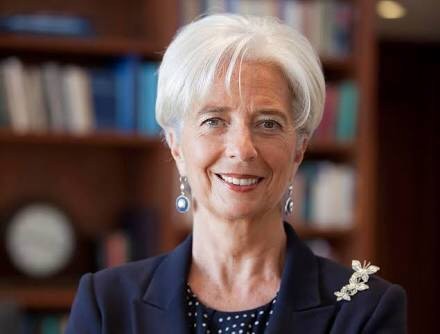Ms. Christine Lagarde, Managing Director of the International Monetary Fund (IMF), issued the following statement yesterday at the conclusion of a visit to Riyadh, Saudi Arabia:
“It has been a great pleasure to visit Riyadh, Saudi Arabia, where I had the privilege of meeting His Royal Highness Crown Prince Mohammed bin Salman. We discussed the economic outlook and current policy developments in Saudi Arabia. I had fruitful discussions with the Minister of Finance H.E. Mohammed Aljadaan and Governor of the Saudi Monetary Authority (SAMA) H.E. Ahmed Alkholifey. I was also pleased to participate in the Future Investment Initiative conference, where I exchanged views with Saudi and global business leaders on economic policy priorities and new models for innovation. I was delighted to meet with Saudi women business leaders, researchers, lawyers and activists. We discussed the recent progress in strengthening women’s rights in Saudi Arabia as well as ways to further boost female labor force participation and entrepreneurship.
“Saudi Arabia had made good progress in initiating its ambitious reform agenda. Fiscal consolidation efforts are beginning to bear fruit. Progress with reforms to improve the business environment are gaining momentum, and a framework to increase the transparency and accountability of government is in place. Effective prioritization, sequencing, and coordination of the reforms is essential, and they need to be well-communicated and equitable to gain social buy-in to ensure their success.
“Fiscal adjustment is continuing, with the government containing expenditures and raising additional revenues. A large, sustained, and well-paced fiscal adjustment is needed in the coming years to continue to respond to the effects of lower oil prices on the budget. However, given the strong fiscal buffers, the availability of financing, and the current cyclical position of the economy, fiscal adjustment should be gradual.
“Saudi Arabia is also undertaking reforms to reduce constraints to women entering the workforce. These include subsidizing transportation and childcare costs, expanding the availability of childcare facilities, encouraging greater use of teleworking, and recently, deciding to allow women to drive. Additional incentives to female employment could include supporting female entrepreneurs through dedicated programs under the small and medium enterprise (SME) initiatives, and offering temporary fiscal incentives to help businesses build or reconfigure work spaces to accommodate women in line with social norms.
“I would like to thank the authorities for their generous hospitality.”

